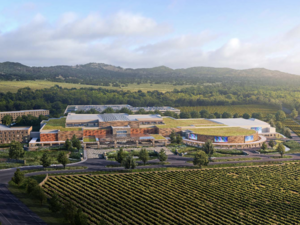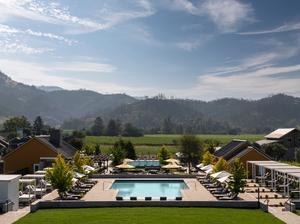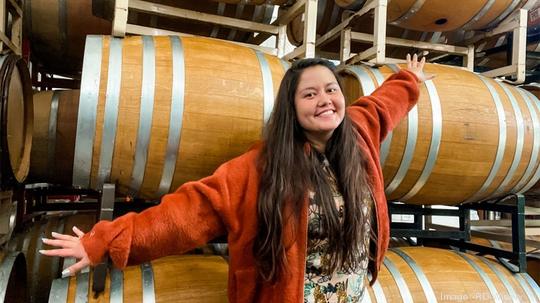
In a crowded valley of aspiring tastemakers, RD Winery’s novelty is less about the wine it produces than the wine it doesn’t — 80% of the bottles flowing out of its south Napa production hub are from brands other than its own.
CEO Mailynh Phan told me that an ample supply of space at the 25,000-square-foot facility motivated a change in its business model: The company shifted from a focus on exporting wine to Vietnam to serving as an incubator space to become an incubator space for about a dozen local beverage upstarts, including small wineries and other producers of cider, beer and sparkling wine.
Since transitioning to the collective model in 2019 and formalizing it in 2021, that side of the business has accounted for 75% of RD Winery's revenue. What's more, participants say the spirit of bonhomie fostered by working in close quarters has added value of its own.
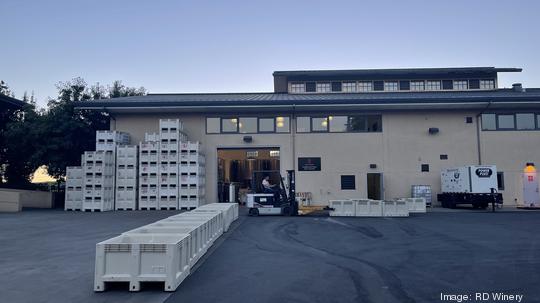
“Some of the folks here work as winemakers for larger brands, so this is a place where they can do things that are more experimental than what they’re used to,” Phan said, pointing out that with her status as seemingly Napa's only female Vietnamese winery CEO, inclusivity has been paramount as well. “I’m not one of the good ol’ guys. So I’m creating a space of people that I can learn from and where people can be comfortable asking questions.”
Some arrangements have clients paying RD Winery on a price-per-ton basis to turn its supply of grapes — sourced from vineyards across California — into wine, sharing labor and equipment involved with production. In other cases clients rent space on a monthly basis to produce other products such as beer or cider, while other partners need back-end logistics assistance for wine bought on the secondary market or blending and bottling functions.
RD Winery’s facilities are capable of bottling 280,000 cases of wine each season, but typically they only bottle about 5,000 for themselves. This season they plan to crush 400 tons of grapes, including 65 tons for their own production.
Despite alcohol sales booming during 2020, California’s ongoing drought and lower expected grape yields have only underscored the need to find a sustainable pivot. Fortunately the winery's location in southern Napa makes wildfire risk less likely, though it does not spare their partner vineyards from potential smoke taint.
A collaborative space
The collective’s members, which are largely small beverage producers from around Napa and California, include Belong Wine Co., Bardos Cider, Newfound Wines, Immortal Estate, Carboniste sparkling wine, Hanabi Lager and others. They say that working in close proximity and sharing space, as well as advice, has limited their startup costs and created a nurturing environment for their businesses.
“There’s a huge amount to learn from related but different fields,” said Nick Gislason, who owns “super-premium” craft beer maker Hanabi Lager with his partner Jennifer Angelosante. “Many of us are going through the same learning process of starting small independent companies, and the ability to get advice from technical to business to marketing is a powerful benefit.”
Plus, “instead of each little business building their own (facility), it’s a lot more efficient,” he added, highlighting the savings on capital-intensive energy use and production maintenance the arrangement entails.
For Belong Wine Co., a tiny 4-year-old operation from husband-and-wife team Bertus and Alli van Zyl, shared space at RD Winery’s facility meant access to an on-site bottling line and capacity to ramp up production from 10 barrels to about 300 in 2020, with plans to double that figure in the next few years. The arrangement also offered advantages in permitting and insurance underwriting that would have been more onerous on their own or in an area of higher wildfire risk.
“There’s this collective of smaller producers like us,” Bertus said. “You can pour your wine for someone, ask what do you think about this, and they do the same for you, so it becomes this stimulating collaborative space.”
“I’ve become friends with the people I work with there,” said Martin Reyes, master of wine and winemaker for Napa’s Peter Paul Wines. “It’s a kind of workshop for all of us — small is beautiful in that way.”
RD Winery opened in 2011 on a 7-acre estate owned by Dong Van Nguyen. Until a few years ago the business had been solely focused on importing wine to his home country of Vietnam in the hopes of stirring up enthusiasm for California wines in a market where beer and rice wine are the norm.
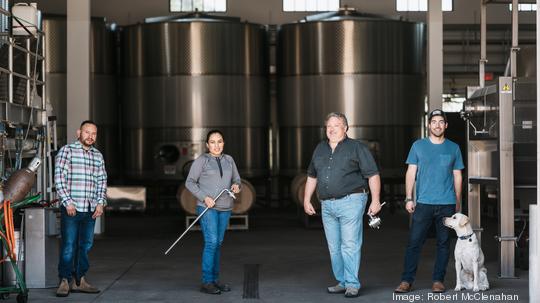
Since becoming CEO in 2019 Phan has shifted the export business to the background in favor of ways to open the winery to the American market, including a line of wines called Fifth Moon designed to pair with flavors common in Vietnamese cuisine, and debuting a Vietnamese-inspired tasting room last summer that gave the public access to the winery’s grounds for the first time.
In the process of monetizing the space for other production, Phan says she’s been pleased by the kinship with other wine and beverage upstarts there was less chance to interact with through the export business, and which became even harder to come by in a work-from-home world.
“Like other businesses we want to be profitable. But we’re also thinking about that community aspect, when we’re approached with people who want to work here, we think about how they would add to this community,” she said. “Everyone spends all their time here at work, more time than at home. So you want people to be happy and like the people they’re working with.”


